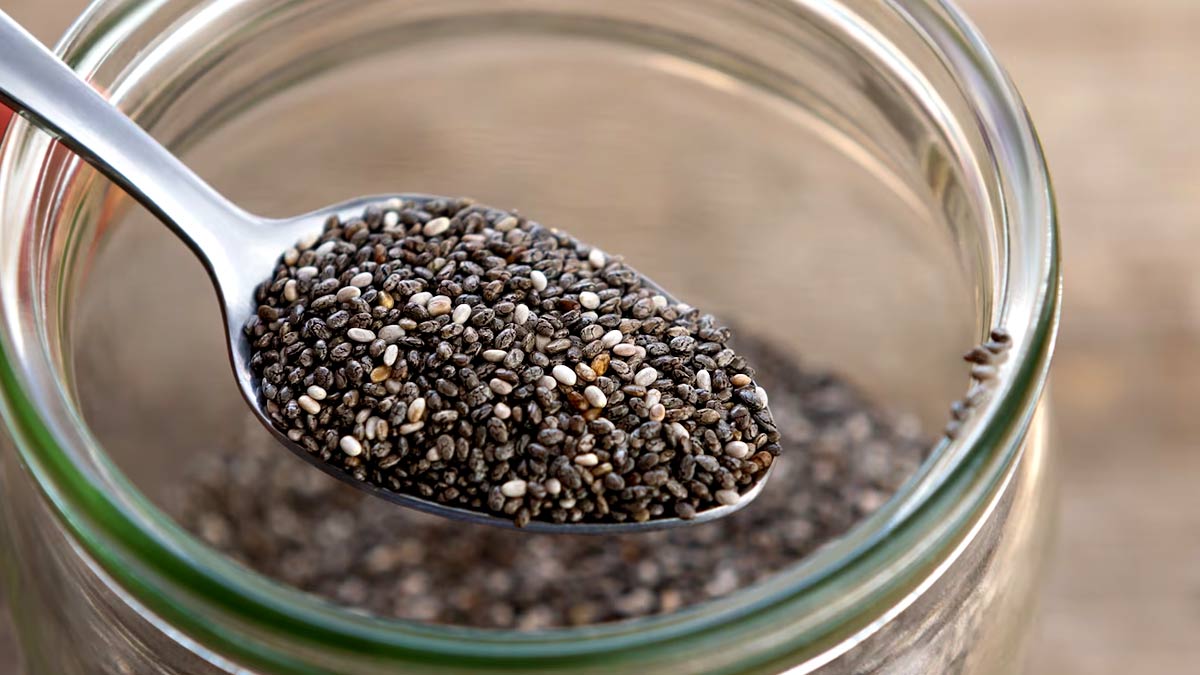
Chia seeds have gained immense popularity in recent years due to their impressive nutritional profile. These tiny seeds pack a powerful punch when it comes to health benefits. If you're curious about what a 100-gram serving of chia seeds contains, read on to discover the nutritional treasure trove they offer.
Table of Content:-
What A 100-Gram Serving Of Chia Seeds Contains
1. Fibre
Chia seeds are renowned for their high fibre content. In just 100 grams, you'll find a whopping 34 grams of dietary fibre. This makes them an excellent choice for promoting digestive health and maintaining a feeling of fullness, which can aid in weight management.
2. Protein
Chia seeds are a great source of plant-based protein, providing approximately 17 grams per 100-gram serving. This makes them a valuable addition to vegetarian and vegan diets, helping to meet protein needs.
Also Read: PCOS Awareness Month: 10 Foods To Avoid for Better Health
3. Healthy Fats
Chia seeds are rich in omega-3 fatty acids, specifically alpha-linolenic acid (ALA). In a 100-gram serving, you'll get around 31 grams of fat, primarily in the form of these heart-healthy fats, which are essential for brain function and reducing inflammation.

4. Antioxidants
Chia seeds contain antioxidants that help protect your cells from oxidative stress and free radical damage. These antioxidants contribute to overall health and may reduce the risk of chronic diseases.
5. Vitamins and Minerals
Chia seeds are a good source of several essential vitamins and minerals, including calcium, magnesium, phosphorus, and manganese. These minerals play key roles in bone health, muscle function, and more.
Also Read: PCOS Awareness Month: 10 Foods To Avoid for Better Health
6. Hydration
When chia seeds come into contact with liquid, they absorb it and develop a gel-like consistency. This property can help keep you hydrated, making chia seeds a valuable addition to your diet, especially during hot weather or strenuous physical activity.

7. Versatility
Chia seeds are incredibly versatile. You can add them to smoothies, yoghurt, oatmeal, or use them as a thickening agent in recipes. They are virtually tasteless, making them an easy and nutritious addition to a wide range of dishes.
Incorporating chia seeds into your diet can be a simple and effective way to boost your nutrient intake. However, it's essential to consume them in moderation, as their high fibre content may cause digestive discomfort in excessive amounts. Start with a smaller serving size and gradually increase as your body adjusts.
Remember, chia seeds are just one component of a healthy diet. For optimal nutrition, it's essential to maintain a balanced and varied intake of foods from all food groups. Including chia seeds as part of a well-rounded diet can contribute to your overall well-being and nutritional intake.
Also watch this video
How we keep this article up to date:
We work with experts and keep a close eye on the latest in health and wellness. Whenever there is a new research or helpful information, we update our articles with accurate and useful advice.
Current Version